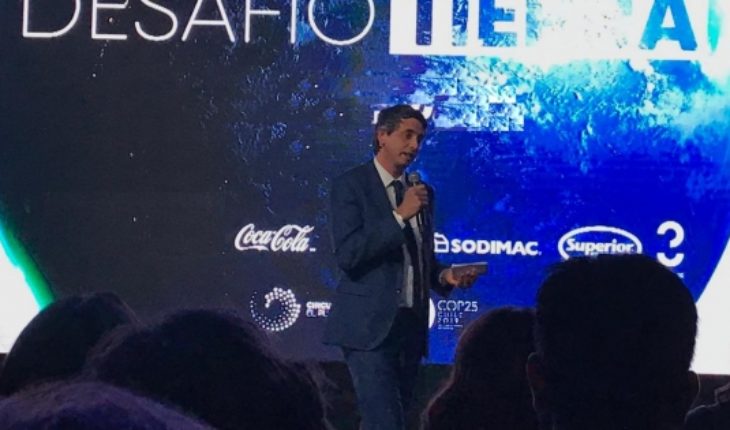The Climate Action Summit held at the UN headquarters in New York took the agenda this week, whether for the active or skeptical role of government leaders, the participation of teenage activist Gre Thunberg, among other things.
This week, the alarming “Special Report on the Ocean and the Breeder in a Changing Climate” was also unveiled by the UN Intergovernmental Panel on Climate Change (IPCC). “We will only be able to keep global warming well below 2oC if we apply unprecedented transitions in all aspects of society, for example in the areas of energy, land and ecosystems, urban areas and infrastructure, and industry”, were the words of the co-chair of the IPCC Working Group who once again recalled the urgency that they must take the necessary measures on government agendas to combat climate change.
Chile has taken an active role. That is why, after participating in the opening session of the IPCC that produced the global report on Oceans and the climate summit, the Minister of Science and Technology, Andrés Couve, commented on his concerns about the bluntness of the document.
“What this report says about oceans and the cryosphere – which are our ices – is absolutely blunt. The ocean has increased its level, its temperature (we have a global temperature that has increased by 1.2 degrees), we have melting ices that contribute to sea levels,” Couve said at the launch of the first Campaign of Challenge Earth, Alliance Turner’s channel editorial that seeks to spread environmental issues.
Time for action
“Our first action at COP25, which we have defined as the time for action, is to welcome that scientific evidence: we receive it, welcome it and agree with it we have to act,” the portfolio minister stressed and on the preparation of this report in which more than 100 scientists from more than 30 countries participated.
“The data collected in this scientific report is worrying. The projection of this X-ray is even more troubling and how this goes unwrapping over time,” he added.
That’s why it’s essential for the minister to make decisions. “We pretty much know what’s going to happen, you can predict with models what’s going to happen with the temperature of the oceans, with that of the atmosphere, what’s going to happen to sea level. What you can’t predict what we’re going to do, there’s the call to action,” he said
For Couve, the grand conclusion of this Climate Action Summit is that the solution “depends on our governments, the private sector, scientific research and civil society.” “There is no transition or transformation if there is no participation of all and all in this process,” he added.
Allied countries
Couve also highlighted the active role that the current government has taken in adding different countries to take on the challenge of achieving a zero carbon footprint. “Within a few months they managed to recruit from a very restricted number of countries that had joined carbon neutrality by 2050, to have today more than 66 countries added to this cause,” said of President Sebastián Piñera and the Environment Minister Carolina Schmidt.
Chile has taken the lead in the Climate Ambition Alliance, with nations driving high-level action by 2020 to achieve carbon neutrality by 2050.
translated from Spanish: Andrés Couve and climate crisis: “We have to act”
September 28, 2019 |





